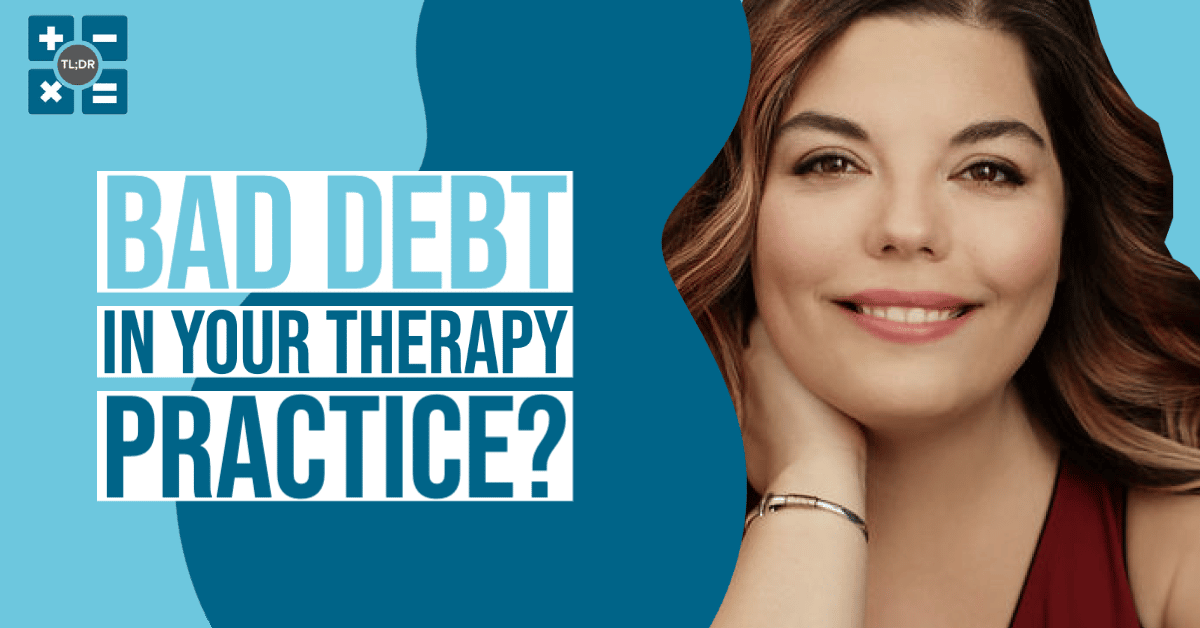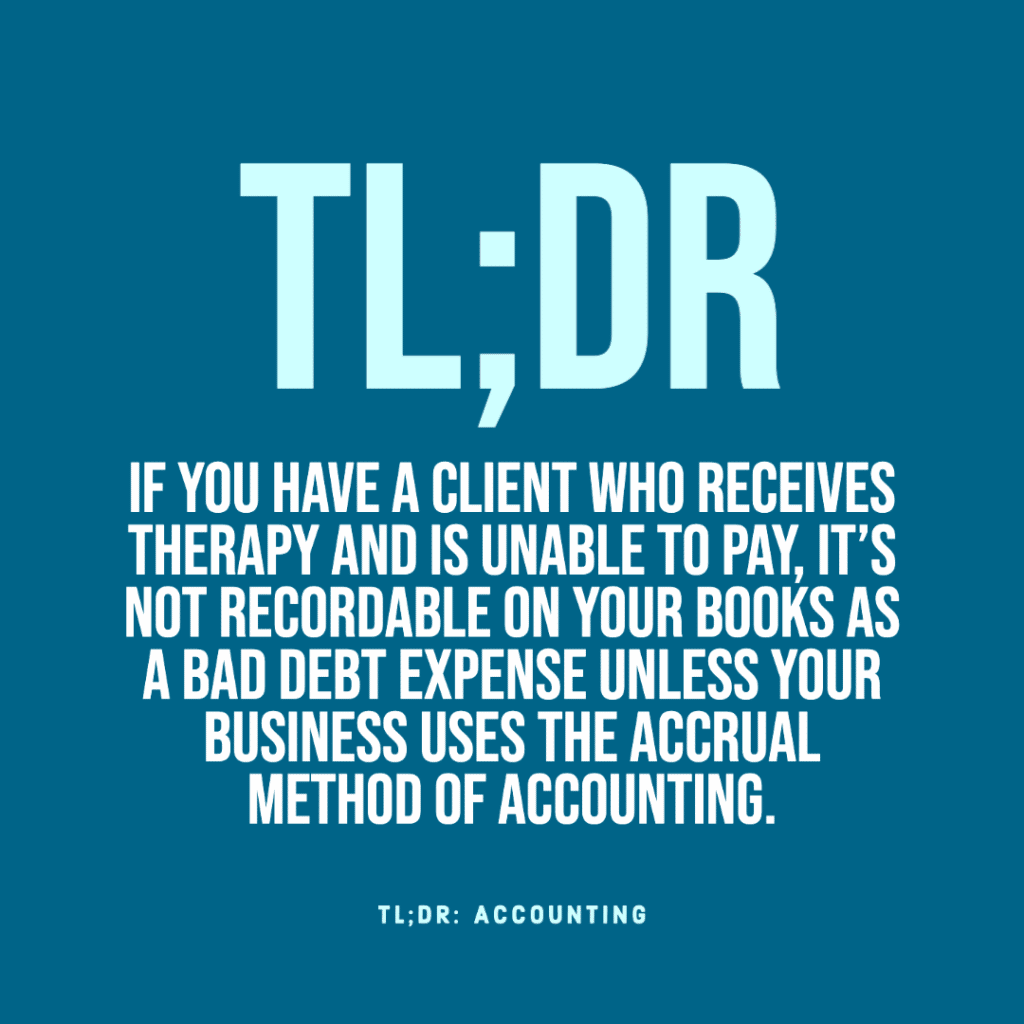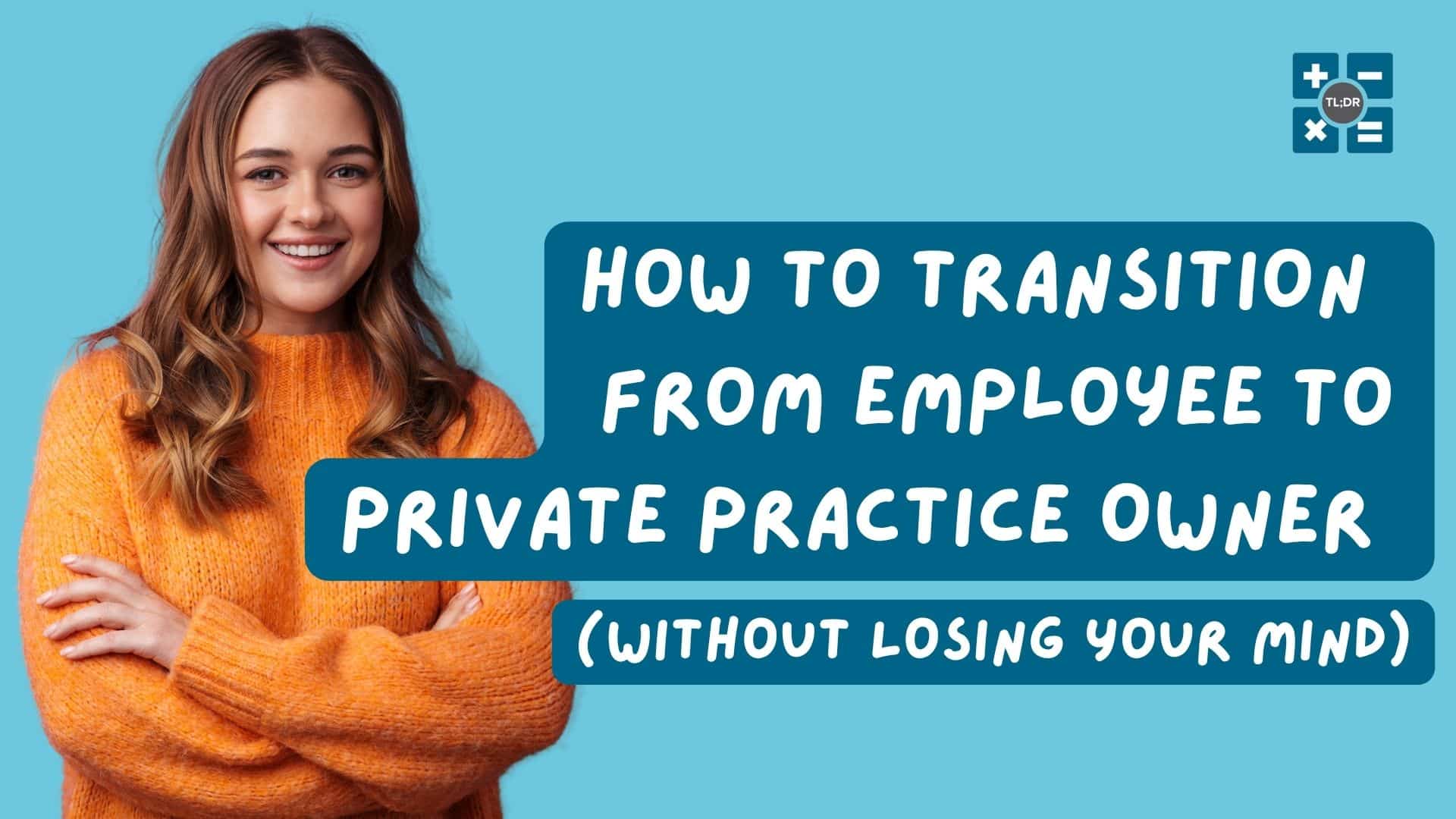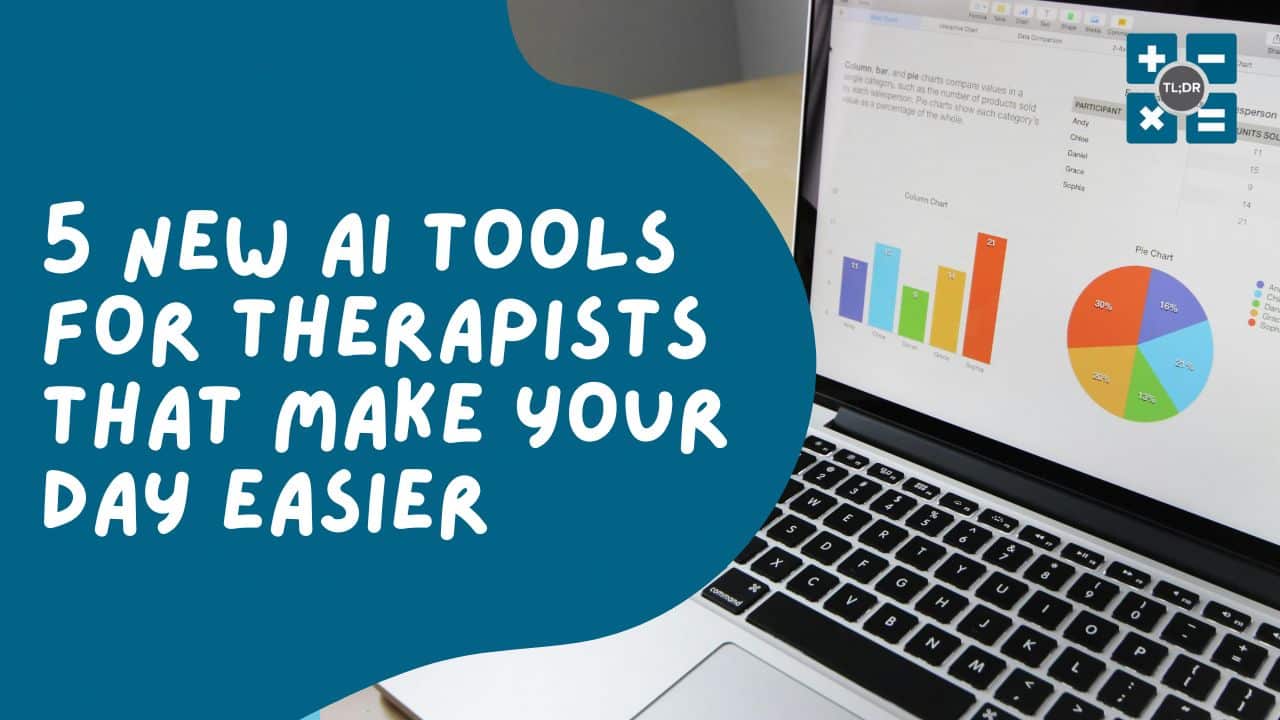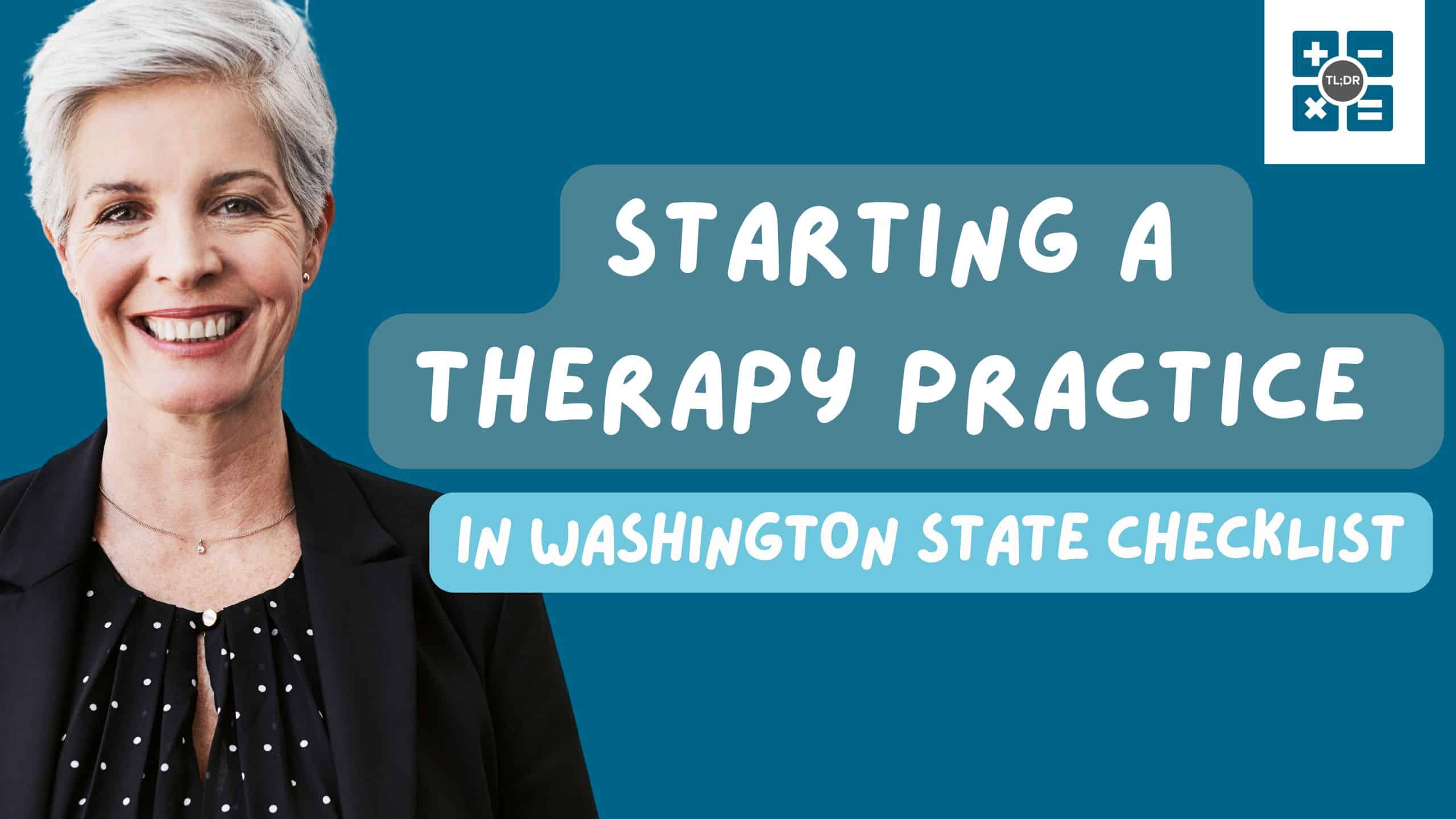Let’s consider an unfortunate situation that you may be familiar with in your therapy practice (though it hopefully doesn’t happen too often!).
A client shows up for their first therapy appointment, it goes well, and you bill them for your services. Then the payment doesn’t go through. The card is declined, or the check bounces, or the client is otherwise short on funds.
When this happens, you might be thinking of it as a Bad Debt Expense because of the circumstances: They received a service and are unable to pay for it afterward. As we’ll explore in this article, though, such a situation may not technically be bad debt. It all depends on whether you use Cash Basis Accounting.
What Is Cash Basis Accounting?
Cash Basis Accounting (also known as the “cash method”) is the accounting method used by most small businesses from the start. It’s a useful method for service businesses because you generally don’t need to buy raw materials on vendor credit.
The implementation of the cash method is quite simple. When money hits your business bank account, it’s income (you do have a business bank account so you can separate business and personal expenses, right?). When money leaves your bank account or when you use your company credit card to pay for something, your business incurs an expense.
You can feasibly run a business using the cash method indefinitely, depending on the nature of the business and how much it grows. We recommend waiting until there’s a pressing need before you “graduate” to Accrual Basis Accounting (AKA the “accrual method”).
The accrual method accounts for income when it is earned, regardless of when that income hits your bank account. It also accounts for expenses when they are incurred. In other words, when you agree to pay an expense, that expense is added to your business books.
Importantly, the cash method does not record customer debt but the accrual method does.
When Debt Goes Bad
Let’s break this down step by step, getting into what happens with the cash versus accrual method during a single transaction that ends up unpaid:
| Event | Cash Basis Effects | Accrual Basis Effects |
| Two sessions of therapy are provided to a client | No book effect | Revenue is earned, and there is an increase to your Accounts Receivable account (the client’s debt account) |
| Client pays for session #1 and the payment clears | Revenue is earned as the cash goes into the business bank account | The client’s debt is reduced by the amount the client paid. Cash goes up. |
| Client’s session #2 payment does not clear | No book effect | After attempts to collect on the payment have been tried, the debt may be forgiven. If this happens, client debt is reduced along with revenue. |
Note that under the cash method, the only event above that is recorded in your business books is when you receive a client payment (as long as it clears).
Note: If you don’t know whether you are cash basis or accrual basis accounting, you are probably cash basis.
Bad Debt and Cash Basis Don’t Mix
Looking at the chart above, you can see that under the cash method, you don’t record anything in your books at the time you provide therapy (until it is paid), and you only record payments that clear the bank. If a customer can’t pay for services, you would record nothing at all in your business books (although it’s worthwhile to note this in the client file!).
If we are filing your tax return and your business operates on the cash basis of accounting, we’ll have to make adjustments to your books if we see any Bad Debt Expenses. Other items that we’ll have to adjust out of a cash basis Profit & Loss statement would include prepaid expense accounts, Accounts Receivable / Accounts Payable, and Depreciation (although Depreciation may be deductible on your 1040 depending on the circumstances).
TL;DR: If you have a client who receives therapy and is unable to pay, it’s not recordable on your books as a Bad Debt Expense unless your business uses the accrual method of accounting. If you don’t know what the accrual method of accounting is, your business probably uses the cash method instead. Cash method businesses do not have a Bad Debt Expense account. If a client receives services and is then unable to pay, a cash method bookkeeper would refrain from recording anything in your business books.

